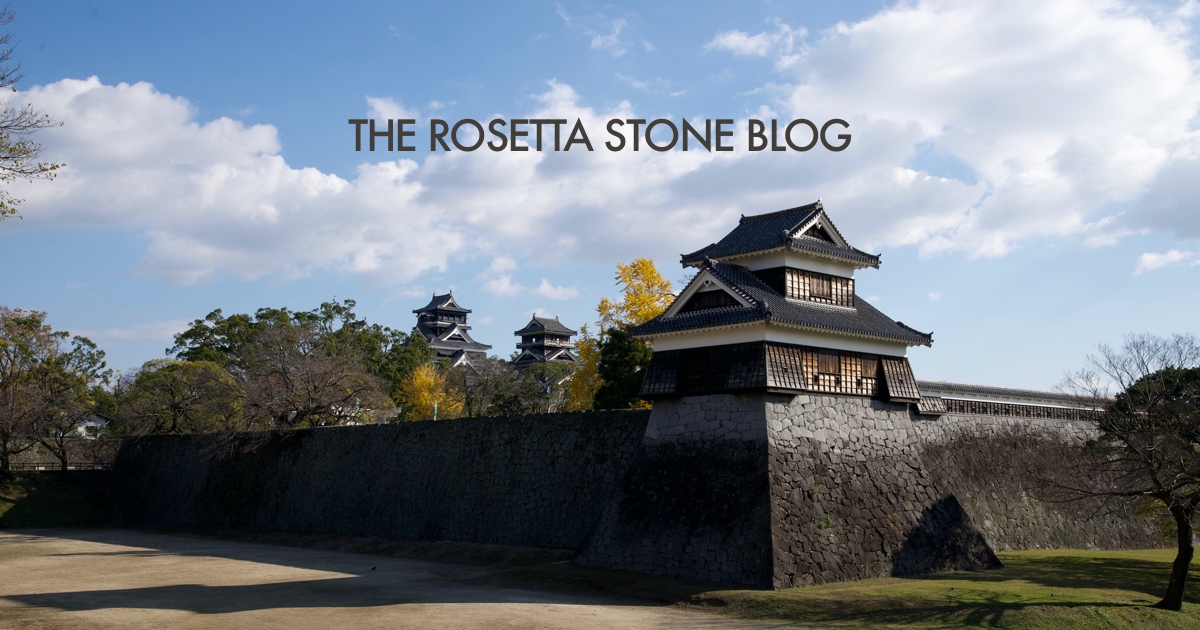
「多様性の時代」と耳触りの良い言葉が盛んに使われているが、その意味を取り違えている人が少なくない。多様性とは、他者の価値観や文化を尊重し合うことが本質である。しかし中には、周囲への配慮を欠いたまま、自己主張だけを正当化し、我を通すことを「多様性」と誤解している人もいる。
SNSに投稿される動画や画像、発言の数々を見てみると、それらがすべて許容されるわけではない。というのも、公序良俗に反する内容や、迷惑行為、さらには個人攻撃に該当する名誉毀損など、法的に許されない愚行が散見されるからだ。
こうした白黒の線引きができない人たちは、自分の立ち位置や行動の影響を省みることができず、視野が狭く、常識や良識に欠けている。教育や躾の不足が露呈し、結果として「身の程知らず」な言動を繰り返すことになる。

また、日本に来るインバウンドの旅行客に対して、特にアジア系の観光客の言動に苦言を呈する日本人もいるが、「外国人ばかりが問題を起こしている」と断じるのは誤りである。
むしろ、日本人の中にも民度が低く、非常識な言動を平気で行う人が少なからず存在している。したがって、インバウンドの観光客を一括りにして差別的に見下すような姿勢は、決して許されるべきではない。
日本人であれ外国人であれ、法治国家・日本に旅行やビジネスで訪れた以上、「郷に入っては郷に従え」の精神で、日本の法律やマナーを守るのが最低限のモラルである。

寺社仏閣を訪れた際に、植栽の陰で用を足すような行為は、公共の場における許されざる汚穢行為であり、そのような低民度の旅行者は、当然ながら非難されるべきである。旅行代理店やツアーオペレーターは、こうした愚行を防ぐために、事前に十分な啓発を行い、「恥の文化」を明示する責任がある。
「日本らしいおもてなし」は世界から評価されているが、近年では過度なおもてなしが目立ち、むしろ違和感を覚える場面も増えてきた。外国人観光客に対して過剰なサービスを提供する一方で、日本人客には冷淡に対応する店や施設もある。
コロナ禍に発行された割引クーポンを手にした日本人旅行者が、旅慣れていないことを理由に「お客様面」をしてカスタマーハラスメント(カスハラ)を行う事例も、根本は同じである。
知的レベルの低い人々は、自己中心的な「我」を通すことを最優先とする傾向がある。そのため、他者への迷惑や社会常識を顧みず、旅行先でも無礼な言動を繰り返す。

軽装で富士山に登る外国人登山者も、同様の構図である。「金を払えばお客様だから、何をしても許される」といった誤った認識を助長するのは、過度なおもてなしに起因している。だからこそ、「おもてなし」は必要最小限にとどめるべきである。
結局のところ、我を貫いてばかりいると、必ずや周囲から「トラブルメーカー」として白眼視され、やがては事件や事故の火種となり、最悪の場合は警察沙汰にも発展しかねない。
これは至極単純な理屈である。「郷に入っては郷に従え」、そして「おもてなしを自己都合で拡大解釈するな」。この2点を守るだけでも、大半のトラブルは未然に防げる。

最後に一つ問いたい。我々日本人が欧米へ旅行に行った際、彼らが日本のような「過剰なおもてなし」をしてくれるだろうか? 答えは否である。むしろ、価格帯に応じてサービスの質が決まり、それが当たり前の感覚として根付いているのが、世界の常識だ。
世界には、日本の「多様性」など足元にも及ばないほどの、はるかに多様な価値観やルールが存在している。そのような世界で、安易に「日本と同じだろう」と油断して行動すれば、思わぬトラブルに巻き込まれることになる。
ある国々では、たとえ違法行為でなくても「スパイ行為」とみなされ、拘束された上に裁判沙汰となり、帰国できない日本人も少なくない。それを踏まえた上で、海外に出る場合、相当な覚悟が必要になる訳だ。
くわばら、くわばら。(苦笑)
----------
▼ChatGPT 4oによる英訳
The Dangers of Self-Centeredness and the Misunderstanding of Diversity
The phrase "an era of diversity" is often used as a pleasant-sounding expression, but many people misunderstand its true meaning. At its core, diversity means respecting the values and cultures of others. However, some individuals justify their self-centered behavior and push their personal agendas under the false assumption that doing so constitutes "diversity."
When we look at the videos, images, and comments posted on social media, it becomes clear that not everything can—or should—be tolerated. The reason is simple: some of these posts violate public morals, constitute nuisance behavior, or even amount to defamation through personal attacks—acts that are legally unacceptable.
Those who cannot distinguish right from wrong often lack awareness of their own position and the impact of their actions. Such people display a narrow perspective, lacking in common sense and decency. Their behavior reveals a lack of education and upbringing, which ultimately leads to a cycle of arrogant and inappropriate conduct.
There are also Japanese individuals who criticize Asian tourists for their behavior while visiting Japan. However, it is a mistake to assume that "only foreign tourists cause problems."
In fact, there are many Japanese people who exhibit equally low standards of conduct and act rudely without hesitation. Therefore, adopting a discriminatory attitude that looks down on inbound tourists as a group is never acceptable.
Whether Japanese or foreign, anyone visiting Japan for tourism or business must adhere to the laws and customs of this country. The principle of “When in Rome, do as the Romans do” applies—respecting Japanese laws and manners is a minimum requirement.
For instance, relieving oneself in the shrubbery of a temple or shrine is an unsanitary and disgraceful act that cannot be tolerated in a public space. Tour agencies and tour operators have a responsibility to prevent such indecent behavior by educating travelers in advance and making them aware of Japan’s culture of shame.
Japan’s unique spirit of hospitality is praised globally. However, in recent years, this hospitality has sometimes gone too far, leading to uncomfortable situations. Some establishments offer excessive service to foreign tourists while being noticeably colder to Japanese customers.
There have even been cases during the COVID-19 pandemic where Japanese travelers, having received discount coupons, act entitled and harass staff—so-called “customer harassment” (or kasuhara in Japanese). This too stems from the same root cause.
People with low intellectual awareness often prioritize pushing their own will above all else. They act rudely in travel destinations without regard for others or for societal norms.
The phenomenon of foreign climbers attempting to ascend Mount Fuji in sandals or other light attire is another manifestation of this mindset. The misguided belief that "as long as I’m paying, I can do what I want" is amplified by Japan's excessive hospitality. Therefore, hospitality should be offered within reasonable limits.
Ultimately, if one continues to force their own will upon others, they will inevitably be labeled a “troublemaker,” becoming the source of disputes or even accidents—and in the worst-case scenario, involving the police.
The logic is extremely simple: “When in Rome, do as the Romans do.” And “Do not twist hospitality to suit your own needs.” By following just these two principles, most problems can be avoided.
Let me end with a question:
When we Japanese travel abroad—say, to Europe or the United States—do they treat us with the same level of excessive hospitality that we extend here in Japan? The answer is no. In many parts of the world, service quality is tied directly to price, and that’s considered entirely normal.
The world is filled with value systems and rules far more diverse and complex than those found in Japan. If one assumes that "it must be the same as in Japan," they may find themselves caught in unexpected trouble.
In some countries, even if an act is not illegal, it can be construed as espionage, leading to arrest and trial. There are Japanese nationals who remain detained overseas for this very reason. Traveling abroad requires serious preparation and awareness.
Kuwabara, Kuwabara. (A traditional Japanese expression to ward off misfortune.) (wry smile)
----------
◎ロゼッタストーン公式サイト(since 1995/熊本県第一号WEBサイト)
https://www.dandl.co.jp/
文責:西田親生

![ロゼッタストーン[異業種交流を軸に、企業の業務合理化及び企業IT戦略サポートいたします]](../img2/rosettastone.png)















Comments